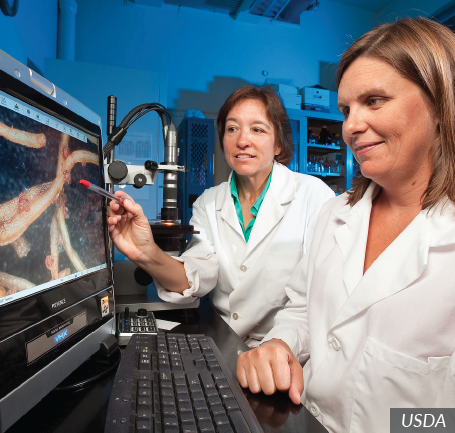Overview
Plant pathologists study the health of plants. They work to identify diseases, pests and other health problems a plant may experience.

What responsibilities will I have?
- Tissue sampling and other routine tasks associated with experiments
- Mechanical inoculation of virus, bacteria, fungi, oomycete, nematode and other pathogens in field, greenhouse and growth chambers
- Bio-assays with insects/vectors
- Perform routine data collection from a various sized research projects and entry into enterprise systems
- Prepare clear, accurate, and concise reports of results, and communicate to customer or colleague stakeholders
- Perform or direct simple to complex molecular lab work
- Perform complex data analysis using parametric and non-parametric statistical models
- Lead a cross-functional team in innovating, developing and enabling new phenotyping, diagnostic, and other assays for existing and new problems
- Network internally to innovate and enable new tests
- Network externally to assess state of the art and evaluate new research opportunities
- Propose and lead external collaborations directed toward goals
- Ability to innovate to design and implement new screening methods & platforms for existing or emerging diseases
- Review literature and stay up to date on latest technologies
What education and training is required?
Typically plant pathologists obtain an undergraduate or graduate degree in botany, horticulture, plant pathology or biology, having a doctorate degree is recommended.
To pursue a career as a plant pathologist:
The following high school courses are recommended: agricultural education, biology, chemistry, mathematics and environmental science.
Where can I work?
Plant pathologist can work in a wide variety of settings from the laboratory to the field. They are employed by seed research and biotech companies, the government, universities, or even work independently for different clients.
Future Job Market / Outlook
The future outlook for a plant biologist will be great over the next five years.
Suggested Professional Organizations and Associations
- American Society of Plant Biologists
- American Phytopathological Society
